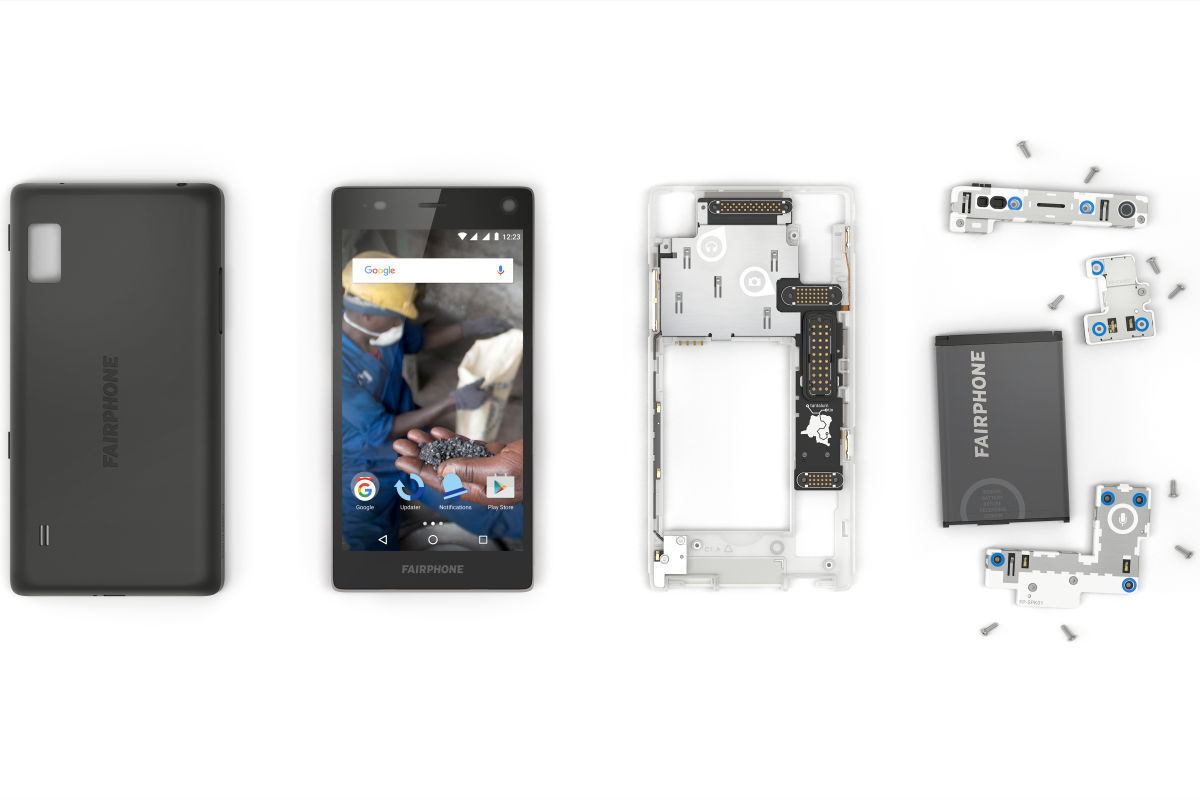News
Fairphone 2
Like its predecessor, the new smartphone Fairphone 2, released late 2015 by Dutch company Fairphone, lives up to its name. Fairphone listed fair workplace conditions, environmentally friendly fabrication and sustainability as its three main priorities in designing the technology and workflow. To find out how well Fairphone did, Telekom Deutschland recruited an evaluation by Fraunhofer IZM and Deutsche Umwelthilfe (DUH).
The main goal was identifying strengths and weaknesses, information that can later be fed back into further development of the phone. The study surveyed around 50 experts, including from environmental protection and consumer rights associations, research institutes, universities, churches and unions. Consensus was that Fairphone 2 is way ahead of the game when it comes to sustainability. The phone’s modular design, which simplifies repair, was described as groundbreaking. Defective components, including the battery, camera and display – can simply be replaced by users themselves. DUH National Director Jürgen Resch commented, “The modular design minimizes electronic scrap and cost. All IT manufacturers should be adopting this design approach.”
The workplace conditions of employees involved in the fabrication of Fairphone 2 - from those involved in mining of the raw materials to those working in assembly - were also considered exemplary and pioneering. However, much room for improvement exists. “Even if not all workplace safety standards are met in during manufacturing, the project is a beacon for the entire electronics industry,” says Thomas Fischer, DUH’s Head of Circular Economy. Experts also criticized how the contaminants were dealt with. A particular objection was that the information supplied by the manufacturer was insufficient. However, it should be noted here that, on the other hand, the criteria “transparency” was assessed positively.
Finally, Fraunhofer IZM’s Head of Environmental Evaluation and Optimization, Karsten Schischke explained, “Assessment of the phone’s sustainability identified key design aspects that need improvement.”
DUH and Fraunhofer IZM will stay on top of this issue and will continue monitoring development of Fairphone 2. In parallel, we will join forces to lobby other cell phone manufacturers to focus more on sustainability.
The results of the study will be presented to an international audience of experts at the Electronics Goes Green Conference in Berlin on September 7.
For the complete study (German only) visit:
Last modified:
 Fraunhofer Institute for Reliability and Microintegration IZM
Fraunhofer Institute for Reliability and Microintegration IZM